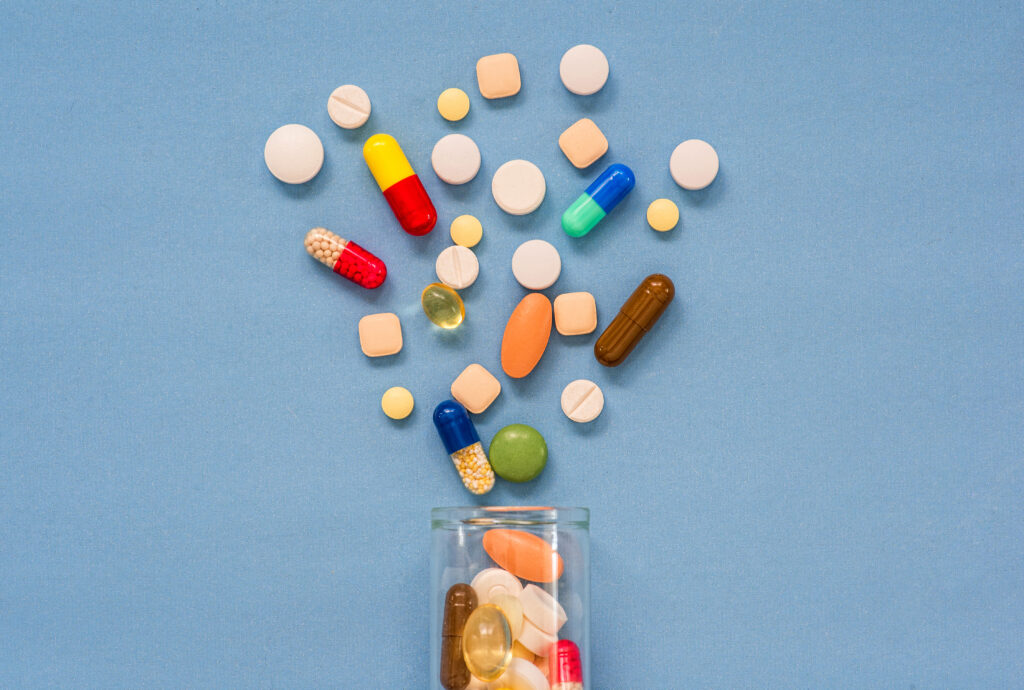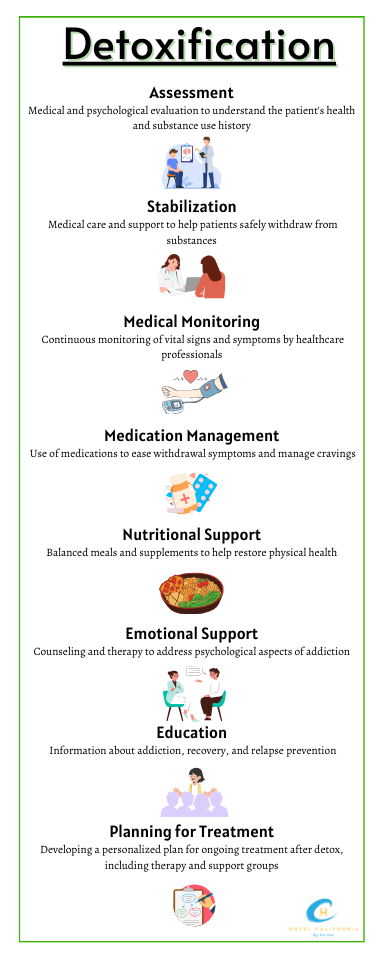What is the first step to Recovery?
Substance use disorder is a mental health condition that affects every aspect of a person’s life. It can begin to take a negative toll if and when it spirals into a more severe condition. Recovery from substance addiction can become a lifelong process. Taking the first step to recovery can be a difficult, empowering, yet overwhelming feeling. It requires the individual to be ready physically, psychologically and emotionally. Today, there are a variety of evidence-proven methods and treatments to help those who suffer from substance use disorder or alcohol addiction.

Recovery from substance use disorder can start in many ways. Some believe it is the act of admitting to having a problem with substance use. Others believe the first step is taking action beginning with detox. Either way, the first step in recovery and the first step in detox are important aspects of the substance addiction recovery process. It requires making difficult and uncomfortable choices that result in a positive and healthier outcome.
The First Step in Recovery and the Stages of Recovery
The first step in recovery requires the individual to admit they have an addiction and that they need help. Once you have acknowledged your habits and behaviors surrounding your substance use have negatively impacted your life, you can begin your journey to recovery. This is not an easy process. For the majority of people with a substance use disorder, treatment will remain a lifelong and ongoing process.
During the first stage of change, users will experience what is known as precontemplation. During this stage, users can become defensive, are in denial about their problems with substances and can get stuck only focusing on the positive aspects of their addiction.
During the second phase of change, users experience feelings of contemplation. This is when they begin to notice how their substance use patterns are affecting their lives and the people around them. They also begin to see problematic patterns of use that can affect their future if they do not make changes and admit they have a problem.
In the next phase of change, users will begin preparing for change. They will have a sense of urgency toward recovery and begin making plans and taking action to change their behaviors associated with addiction.
The action stage of recovery describes when a person has made changes and is committed to those changes. They will often have prolonged periods of abstinence and will turn to resources such as therapy, support groups and medical assistance to help manage their cravings and urges to use drugs.
In the maintenance stage of recovery, the person will have created a relapse prevention plan and continue to work on their sobriety. They will have changed negative habits as well as different aspects of their lives in order to manage or avoid triggers associated with their addiction.

The First Step in Detox and the Stages of Detox in Recovery
One of the very first steps towards recovery is detoxification. Detox is the first actionable step in treatment. Detox is the process of physically clearing the body from drugs or alcohol. Detoxing of any kind can be uncomfortable, dangerous and even life-threatening. It is always recommended to detox with a professional clinical treatment program. Patients who detox in a clinical setting are able to safely and effectively manage withdrawal symptoms that can be experienced when you stop taking a drug you have become addicted to. Detoxing on your own also increases the risk that it will be unsuccessful with a greater chance of relapse.
The Process of Detox
- Evaluation. The medical team will screen the incoming patient for physical and mental health conditions during this stage. Blood tests will be taken to measure the amount of drugs in the system and help determine the severity of the addiction and what types of medications may be needed. Clients will undergo a comprehensive medical review including the history of drug use to create an individualized treatment plan.
- Stabilization. The goal of this stage is to prevent any harm to the patient while they are undergoing detox. 1-2 days after initial drug use has stopped withdrawal symptoms begin as mild and can worsen. The patient can be treated with medication-assisted treatments and experience a moderate to increased risk of relapse. According to SAMHSA, about 80% of detox cases use medications to help reduce and manage withdrawal symptoms. During the peak stages of detoxing (18 hours to 5 days after initial drug use has stopped), withdrawal symptoms become very severe. Detox medications are prescribed as well as intensive cognitive therapies. During this phase, there is generally a very high risk of relapse. Between day 3 and one week out after initial drug use has stopped, the severe symptoms may slowly begin to decline and medications can be reduced. During the final stages of detox between days 5-14, most withdrawal symptoms have gone and patients begin turning to behavioral therapies and support groups as they continue their recovery.
- Preparing to enter treatment. During this last phase of detox, clinicians and doctors will work with patients to set up and begin the next step in their treatment plan. Patients will be explained the process and what to expect during the intensive therapies they will participate in during their continued recovery process.
Check Your Insurance Coverage for FREE
Find out if your insurance covers addiction treatment in minutes. We accept most insurance!
How long is the Detox process?
The detoxing process can be different for each individual patient. It can take anywhere from days to months depending on many different factors. These factors include the type of drug being abused, how long the drug was being abused, how often the drug was abused, the family history of substance use, the general medical history of the patient and if any other substances were also used.
Types of Detox
- Medical Detox – A type of substance detox that may or may not involve using approved medications. The use of medication can depend on which substances were abused and the symptoms of withdrawal. The term medical mostly refers to detoxing in a clinical setting where withdrawal symptoms can be monitored for safety and efficacy.
- Inpatient Detox – This type of detox occurs in an inpatient facility where patients will have 24-hour supervision and care. This is considered one of the safest ways to detox with higher rates of success.
- Outpatient Detox – This type of detox allows patients to detox while at home. This can be effective for clients who do not have a severe addiction. However, due to a lack of access to medical care, this type of detox produces the highest level of relapse. It is not recommended for people with severe addiction because they can experience intense and life-threatening withdrawal symptoms.
- Rapid Detox – Rapid detox uses sedation and anesthesia given to the patient to help remove drugs from the system much quicker compared to traditional detox. However, this method can put a patient at risk for heart attack, pneumonia, fever, infection and nausea. Rapid detox takes between 2-3 days, is generally more expensive and is not covered under most insurance policies.
Reach out to Hotel California by the Sea
We specialize in treating addiction and other co-occurring disorders, such as PTSD. Our Admissions specialists are available to walk you through the best options for treating your addiction.
Are you looking to take the first step to Recovery?
The first step in recovery is to admit you have a problem with your drug use. When it’s time to take action, the first step is detox. Though detox is the first step in recovery, it’s not important alone without the commitment to long-term recovery with medication and therapy. Detoxing on your own is never recommended. You increase the risk of dangerous withdrawal symptoms and relapse. Detoxing is best with a behavioral health treatment program such as Hotel California by the Sea.
We provide all levels of care including detox, inpatient treatment and outpatient treatments. We also utilize intensive and rigorous therapies including CBT, DBT and EMDR therapy. Hotel California by the Sea is dedicated to treating all aspects of addiction to help clients overcome their addiction.
References:
https://www.addictioncenter.com/treatment/drug-and-alcohol-detox
https://www.careaddiction.com/edu/first-step-in-recovery-treatment
https://www.medicalnewstoday.com/articles/323468
https://www.rehabspot.com/treatment/detox
https://www.racnj.com/the-five-stages-of-addiction-recovery
